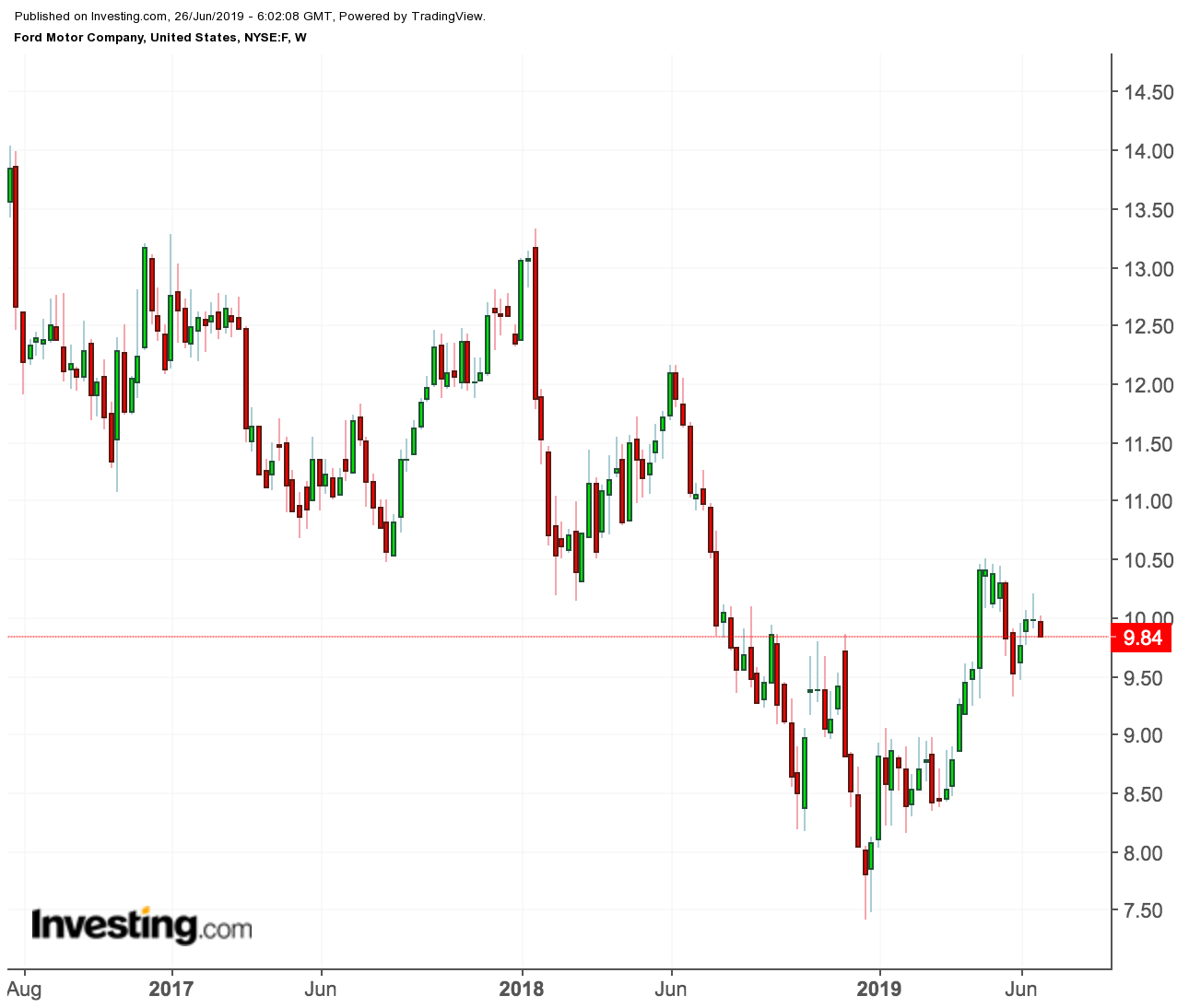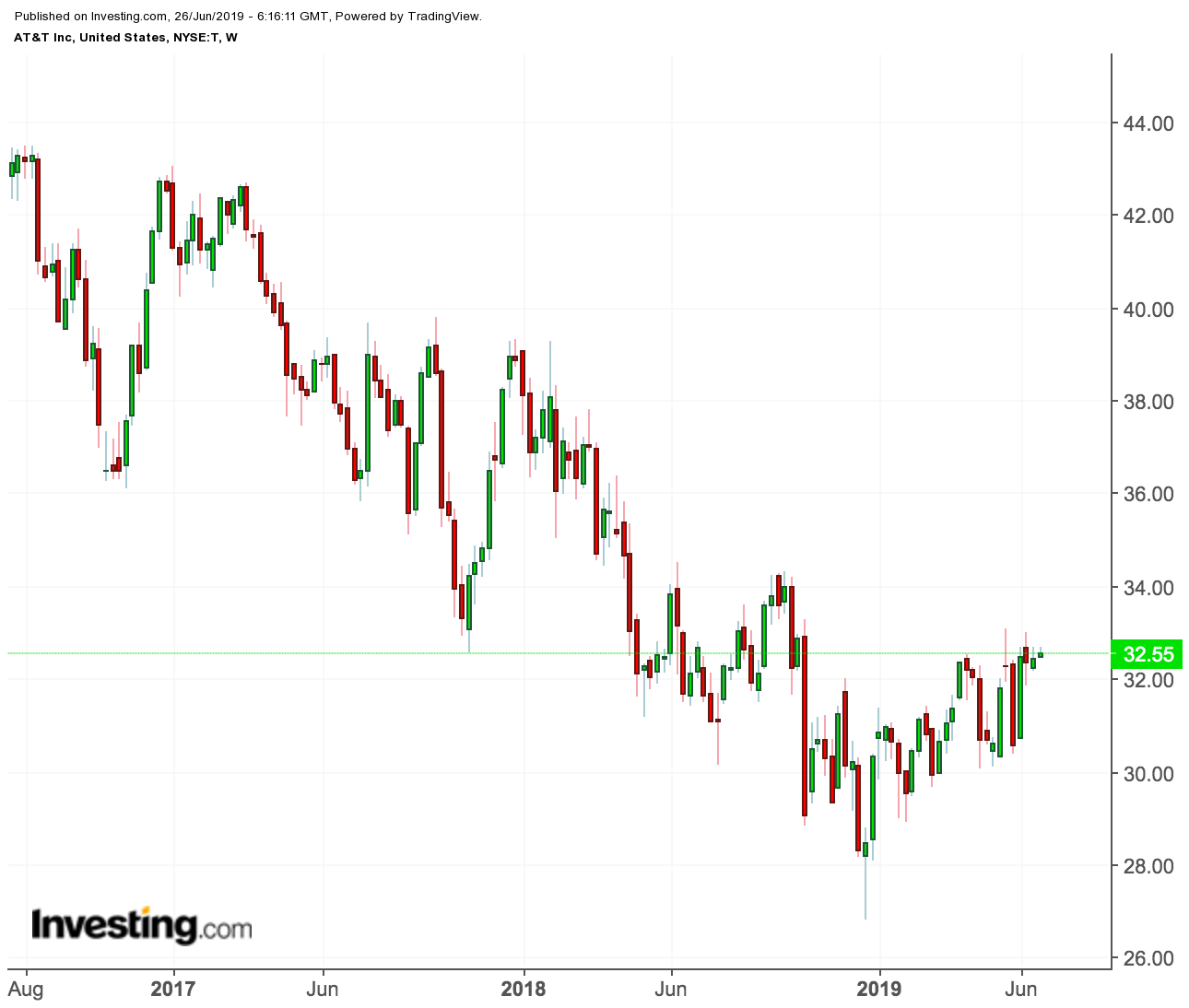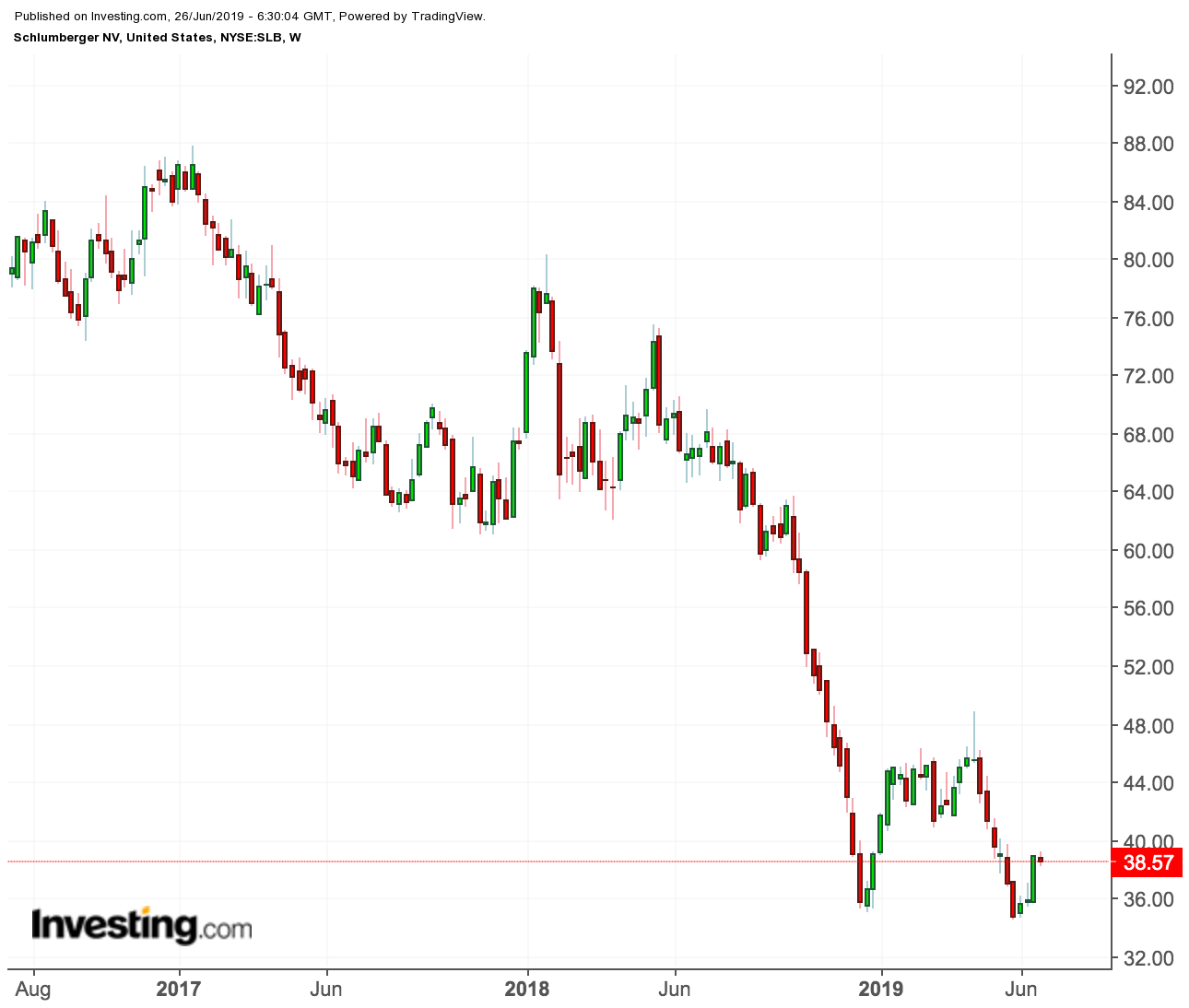The landscape for income investors seeking higher yields is becoming more challenging. As central banks prepare to cut interest rates to save the global economy from slipping into recession, expectations of a low-rate environment are pushing investors to find high-yield alternatives and take more risky bets.
This is one of the main triggers behind the S&P 500 reaching a new record high of 2,954.18 last Thursday. Though dividend stocks, with their solid income streams, can provide shelter as the skies get darker, it’s also important to understand that not all income stocks are safe.
Below are three high-yielding stocks, which we believe investors should avoid despite their extremely attractive dividend yields:
1. Ford Motor Co.
One of America’s largest carmakers — Ford Motor Company (NYSE:F) — has become attractive to yield-seeking investors. Its stock, trading at $9.84 at yesterday's close, is offering a dividend yield of more than 6%. This is a massive premium when you compare it with the S&P 500’s average yield of just 1.9%.

But before buying Ford stock, careful investors should ask whether the company’s payout is safe and sustainable — its payout ratio of over 80% is almost four times the industry average of 22%.
The past few years have been tough for Ford. After many years of rising sales, helped by the robust global economy and consumer demand, the car maker is now facing powerful headwinds: it's undertaking an $11 billion restructuring, after its net income fell by more than half last year as demand for its sedan cars slowed. The turnaround will involve canning thousands of salaried jobs, closing factories overseas, and building capacity to manufacture electric and driverless cars.
As Ford undertakes this massive restructuring exercise to improve profitability and get ready for this new era, investors haven’t shown much faith. The stock has traded below $10 a share since the past summer amid concerns about the sustainability of its generous $0.15-a-share quarterly dividend.
Analysts have built in a potential scenario where Ford's credit-rating could be downgraded soon and its dividends slashed, if the company’s turnaround plan fails to produce results. If the U.S. economy slips into a recession or faces a sharp slowdown, the demand for gas-guzzling SUVs will erode. It’s therefore better to avoid Ford despite its higher yield in this uncertain economic environment.
2. AT&T Inc.
The largest telecom operator in the U.S., AT&T (NYSE:T) is another dividend stock offering a yield that’s hard to ignore. Closing yesterday at $32.55, the shares offer a 6.3% annual yield, paying a quarterly dividend of $0.51-a-share.

But that hefty return doesn’t come without risks. AT&T has been rushing to become a modern media giant at a time when consumers are cutting cords and subscribing to cheaper entertainment options, such as Netflix (NASDAQ:NFLX). To survive in this disruptive environment, the company last year acquired Time Warner, which included popular content assets like HBO and CNN, for $85 billion.
But that acquisition ballooned AT&T’s debt and created operational complications. AT&T has $169 billion of net debt and says 75% of the debt it took on to buy Time Warner will be paid off by the end of this year.
AT&T’s dividend yield is indicating that investors see some sort of cuts in its $15 billion dividend bill going forward if the company’s turnaround plan doesn’t work out. Due to this lingering debt overhang, we recommend investors avoid catching this falling knife.
3. Schlumberger
Schlumberger (NYSE:SLB), the world’s largest oil service provider, has seen its shares plunge about 20% since the April high, to $38.58 at yesterday's close, on concerns that the world’s largest oil and gas explorers will cut their spending plans amid slowing growth and challenging demand-supply situation in the oil markets. That bearish spell has pushed the dividend yield on its stock close to 6%.

The stock, which has fallen more than 67% in the past five years, may look quite attractive to some contrarian investors though. Its annual dividend yield at 5.2% is more than double its five-year average. But the current environment isn't conducive to oil and gas exploration and production companies to go on spending binges while they're under pressure from shareholders to return capital. That, in turn, is reducing demand for oilfield services, according to S&P GIobal, which cut Schlumberger's credit rating last month a notch.
In this uncertain global economic and geopolitical environment, oil prices may not sustain their recent gains. It would be better for investors to avoid entering this trade now.
Bottom Line
Investing in high yielding dividend stocks isn’t always profitable. Investors should carefully pick their holdings, focusing on the companies with strong balance sheets, low levels of debt, and a long history of rewarding investors. The above three stocks don’t fit the bill.
